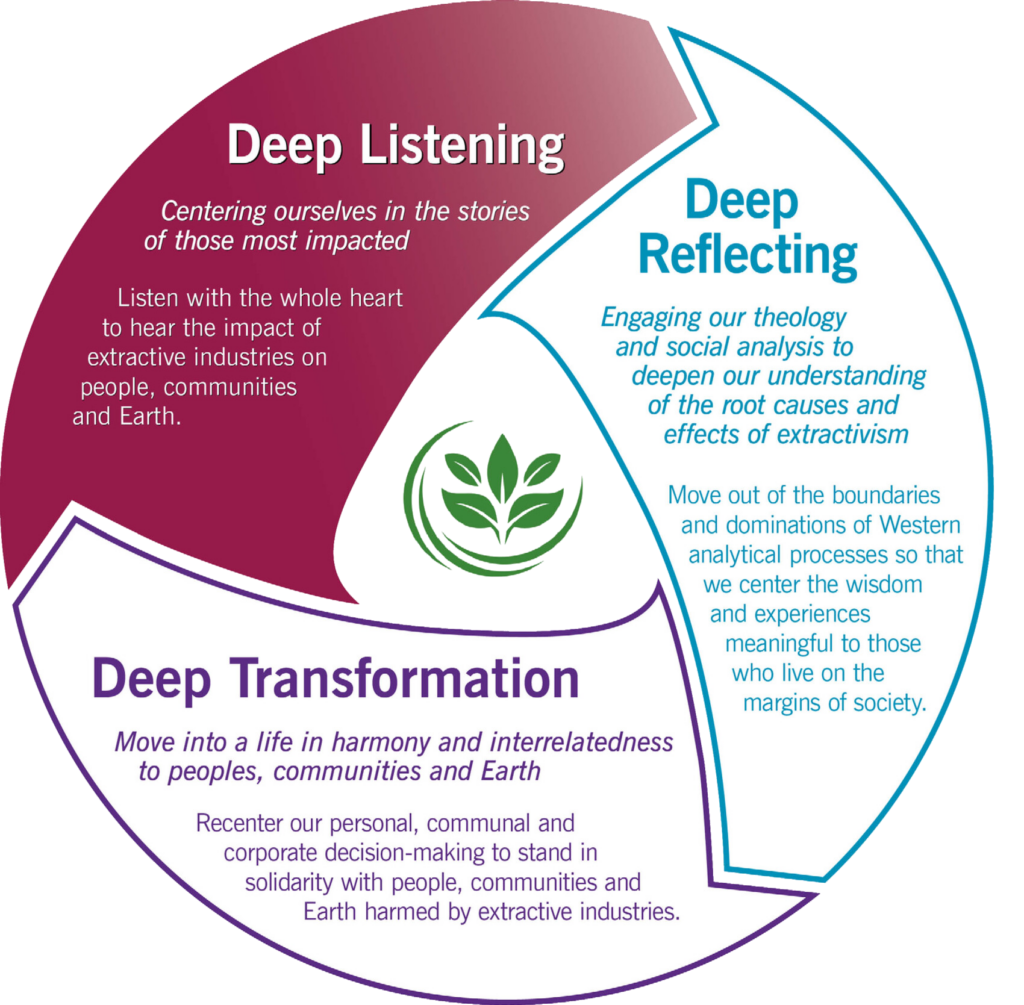
Our integral conversation on extractivism begins with listening deeply to the immersive stories of exploitation. These stories come from communities and persons who have been harmed by extractivism. They live in environments that already have been radically altered or are undergoing radical alteration. The hardest-hit communities are most often made up of Black, Indigenous and people of color who have been systemically oppressed and discriminated against—the most vulnerable members of society.
In many cases, community leaders have been criminalized and imprisoned. Some have been threatened, even assassinated. Whole communities have been displaced from their land. These injustices are not a thing of the past; they continue today. While much of this violence is evident, other kinds of violence remain more elusive, with hidden ongoing detrimental effects. Short-term effects of environmental violence may be visible, such as clean rivers becoming stagnant lakes or beautiful mountains being exploded to bits and leveled. But in other cases, deceptively clean-looking rivers carry invisible, dangerous chemicals that are the by-products of production.

As we listen deeply to the stories of trauma, we must engage our whole body in the process of knowing. Knowing is different from empirical knowledge; it is an “inner knowing.” When we move into the place of inner knowing, we engage our hearts, and we hear those who have experienced and continue to experience exploitation and violence. We hear the cries of Earth and those who have been made poor.
The trauma of Earth speaks to us as we listen to what is happening to the air, water and land. We attend to what is emerging within us. The stories of exploitation compel us to understand why and how such suffering is occurring. We also listen to those who study extractivism to understand the scientific and economic data that speaks to these exploitative root causes and effects, including the direct causation of the climate emergency. Specialized data help us see both the visible and invisible, short- and long-term effects of extractivism. Finally, we ask the questions that emerge in us: Are we complicit in this suffering? If so, how?
After listening deeply to these voices, we will engage in contemplative dialogue and consider these questions:
- What is emerging from our hearts?
- What values are creating tension within us?
- What is clear in us. and what remains unresolved?
- How is extractivism challenging our complicity?
This is not the moment to retreat into your head. Just listen. Listen deeply. Listen with your heart. Be attentive to the voices that know of Earth’s suffering firsthand. They experienced and continue to experience the exploitative and violent effects of this suffering as it disrupts the lives of vulnerable and impoverished people. We will hear the voices of indigenous communities, who are personally engaged in the struggle against extractivism. The suffering in their own lives and communities is intertwined with the suffering of Earth. For generations, they have respected and worked in harmony with the water and land. What their minds, hearts, eyes, ears, hands and bodies already know, scientists now verify. Scientists inform us of the effects, not just to one ecosystem but to network of ecosystems. They explain the cause and effects of environmental degradation and illnesses that arise from such degradation. We will hear the voices of activists and organizers who seek to shift the balance of power back to their communities, many of whom have been forced off their land. All these voices speak to the same concerns: the suffering of Earth and the suffering of the poor.